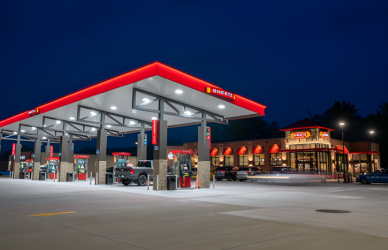When disaster strikes, truck drivers bravely respond to the urgent need for emergency supplies in storm-ravaged areas, despite warnings from officials to evacuate.
It should be noted, however, that their response greatly affects their payment in terms of timing, method, and amount, according to FreightWaves CEO Craig Fuller.
“Hurricane-relief loads offer an opportunity for trucking companies to demonstrate to the public how critical trucking is, regardless of how challenging a mission might be,” Fuller said.
Truck drivers considering hauling Federal Emergency Management Agency (FEMA) loads should heed Fuller’s advice. These loads, advertised by brokers at high-dollar rates, may come with some pitfalls.
Expect Delays and Include Detention
Truckers are urged to protect themselves by including detention rates in confirmation sheets. With rising demand and potentially higher rates, it’s crucial for truckers to factor in the significant delays they may face while waiting to unload. Failure to include detention pay could result in substantial financial losses.
“This is a big problem for trucking companies if they’ve not hauled FEMA disaster-relief loads before, and some of the brokers that are involved in the process can take advantage,” Fuller said. “They may not pay you detention, which is BS, because the federal government pays the broker detention. They will ask for documentation, but make sure that you get paid for detention because it’s your equipment and you’re the one that’s stuck.”
Don’t Expect Speedy Payment
If you’re hauling FEMA loads, don’t expect immediate payment. Freight brokers must first complete the necessary paperwork for FEMA, which can be a lengthy and draining process.
“What I would recommend doing is going in and finding someone that can accelerate your payment, perhaps a quick-pay service or a factoring company that can actually help pay for those freight bills, because if you don’t, you’re going to have problems getting paid,” Fuller said. “Also, get everything in writing: Make sure that you have your confirmation sheets with detention, all of it in writing.”
Be Ready for Staging Area Chaos
Prepare for potential delays in unloading critical supplies. Coordination among local, state, and federal officials is necessary before freight can be delivered.
“You will be dealing with government officials, many of whom are not familiar with logistics and don’t understand what it takes to handle such projects,” he wrote in a FreightWaves article.
Prepare for long waits on the road by stocking up on groceries and making sure you have backup communication. You may experience minimal cellphone service, so relying on CB radios is a smart move. Don’t forget to fuel up before entering the prestaging area. Keep in mind that many fueling stations may be closed due to storm damage.
“Hurricane relief is the biggest dog-and-pony show you will ever see in trucking,” Fuller said. “But there is a certain satisfaction in being able to help people who are suffering.”
Source: FreightWaves











